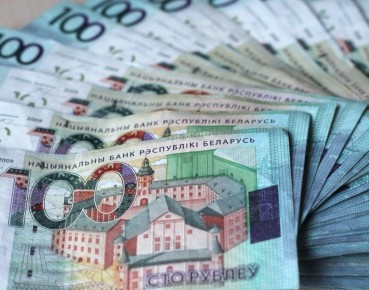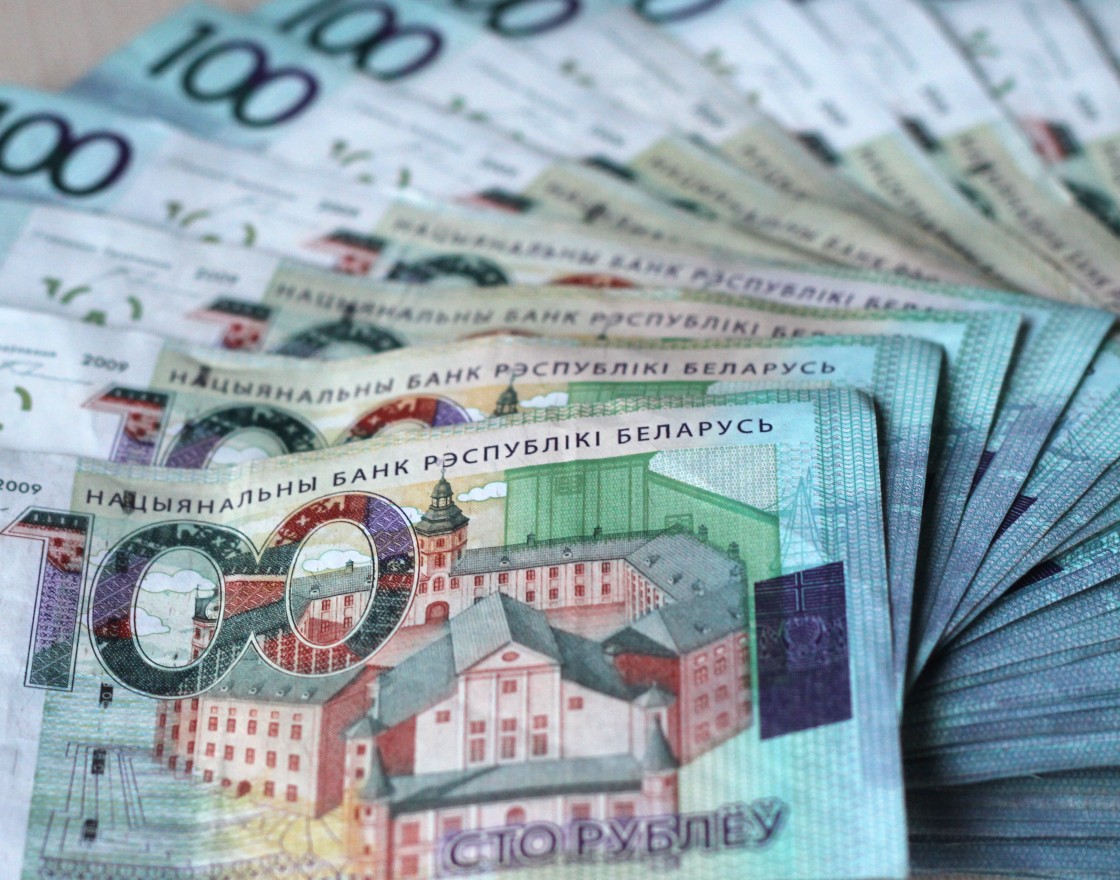
(Pixabay/Maryna_Shyshlo, Public domain )
Ever since the disputed result of presidential election in Belarus on August 9th, 2020, and the ensuing political crisis, the Belarusian finances have been in a state of turmoil. The reason for this is the loss of trust of ordinary Belarusians in the country’s financial institutions.
For weeks, since the presidential election, people have been withdrawing their BYN deposits to quickly convert savings into the USD or other foreign hard currencies, fearing a potential collapse of the Belarusian currency.
According to the National Bank of the Republic of Belarus, only in August, residents of Belarus withdrew USD624m from their bank accounts. As of September 1st, the volume of foreign currency savings of the population in bank accounts and deposits amounted to USD6.48bn, an 8.8 per cent decrease from the previous month. According to the regulator’s statistics, this is a record outflow of foreign currency from Belarusian banks since at least 2003.
Additionally in August, Belarusians withdrew another BYN975m (USD380m) from the country’s credit institutions. The demand for foreign cash withdrawals was further inflated by the rumor circulating in Belarusian Telegram channels about the country’s intention to impose restrictions on withdrawals from bank accounts, something that Belarusian authorities resolutely denied.
In order to meet the increased demand for foreign currency among the Belarusians, the country’s central bank has had to spend its foreign reserves in order to keep commercial banks afloat and prevent a full-fledged run on banks.
The weakening Belarusian Ruble
The rapid withdrawals of the BYN and their subsequent conversion to foreign currencies has brought a significant weakening of the former’s conversion rate. From August 1st to September 1st, the USD increased by 8.9 percent and the EUR by 8.99 percent against the BYN. The value of the local currency has been declining despite the central bank interventions on the Belarusian stock exchange.
According to the National Bank of Belarus’ recent statement, the country’s most important financial institution has spent 15 per cent of its gold and foreign exchange reserves in August alone, trying to keep the rate of the BYN from a further deterioration. These interventions have already cost the bank the USD1.4bn, leaving it with the USD7.45bn worth of reserves (including gold), an almost 16 per cent decrease from the USD8.8bn from early August.
The devaluation of the Belarusian currency is a particularly pressing problem given the fact that around 95 percent of the country’s USD17bn external debt is denominated in foreign currency.
According to the Business New Europe, Belarus has some USD3bn debt obligations to meet this year alone, which puts the government under a severe pressure. Moreover, the USD8.8bn the government held in reserves in early August included the proceeds from a USD1.25bn Eurobond issue in June this year. Now, given the current political climate, Minsk is effectively cut off from the international capital markets.
“Belarus’ Eurobonds were already the worst performing in the Emerging Markets universe in June, as the country was suffering from a double whammy of the coronacrisis and the biggest protests that the incumbent faced in the pre-election period,” wrote BNE.
The worsening situation in the country has also prompted the rating agency Standard and Poor’s to revise Belarus outlook to negative. “S&P Global Ratings revised its outlook on the long-term foreign- and local-currency sovereign credit ratings on Belarus to negative from stable. At the same time, we affirmed the long- and short-term foreign- and local-currency sovereign credit ratings at ‚B/B’,” the agency says in a press release.
The agency further notes that the current rate of residents’ conversion of savings to foreign currency and partial deposit withdrawals could “deplete the Belarus central bank’s available foreign exchange reserves and present contingent liability risks for the government. Since the beginning of August, gross reserves have declined by the USD1.4bn to an equivalent of 2.6 months of import cover.”
In its future scenario section, the agency further states that “the authorities might ultimately be forced to choose between continuing to satisfy the elevated domestic demand for foreign currency, or effectively ring-fencing central bank funds for use by the central government. The latter could then undermine the banking system’s stability and present contingent liability risks.”
The largest creditor
Having basically lost access to international capital markets, Belarus had to turn to its long-term ally to help meet its rising debt obligations — Russia. In mid-September, during a meeting with his Belarusian counterpart Alexander Lukashenko, Russian President Vladimir Putin pledged USD1.5bn loan to Belarus.
„We have agreed that Russia will provide a state credit amounting to the USD1.5bn to Belarus in this challenging situation, and we will do it,” Mr. Putin was quoted by the Russian state news agency Tass. „As far as I know our finance ministers are addressing that issue at a highly professional level,” he added
According to the BNE, “Russia’s continued support is essential for Belarus, as it holds almost half of the country’s USD17bn of public external debt (47 per cent). In addition, Minsk is highly dependent on Russia’s energy subsidy, as well as exports to and imports from its eastern neighbor. About 40 per cent of Belarus’ exports go to Russia, which also accounts for 40 per cent of all the inbound investment. The true share of Russian inbound investment rises to more than half if the investment from Cyprus and the Netherlands is assumed to be Russian money too.”
Besides the loan, Kremlin spokesman Dmitry Peskov had said, before the presidents’ meeting in Sochi, that cooperation on oil and gas, state debts and other economic ties in the Belarus-Russia „union state” would be discussed, but no joint documents would be signed.
A Russian political analyst, Fyodor Lukyanov, told Reuters that this meeting was a significant boost for Lukashenko. “At the moment Minsk doesn’t have any sources of money apart from Moscow… For him, this was his main goal — debt refinancing and a new loan,” he said.

